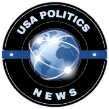Officials from the Democratic Republic of Congo are “optimistic” they can reach a deal with the Trump Administration next month to secure U.S. investment in critical minerals. The resource-rich nation has been asking Washington for help in ending a border conflict with neighboring Rwanda in the country’s east and has been negotiating for several weeks.
The Democratic Republic of Congo is considered to be among the richest nations in the world in terms of raw natural resources. The nation provides much of the world’s supply of coltan, which is used to power smartphones and computers. It also contains nearly half of the globe’s cobalt reserves, a key component of electric vehicle batteries.
China has long dominated the Congo’s minerals sector, which has helped the Chinese Communist Party to build a particularly sizable advantage in electric vehicle battery production. Currently, China is responsible for processing roughly 73 percent of the world’s cobalt and has attempted to expand its mining efforts in African nations, particularly in the Congo, where the CCP controls more than two thirds of the nation’s cobalt reserves.
China also refines 68 percent of the world’s nickel, 40 percent of copper and 59 percent of lithium, according to an analysis from Virtual Capitalist. With continued and expanding control of resources in the Congo and other resource-rich African nations, China is gaining massive control over supplies of minerals used in smartphones, electric vehicles and solar power.
Since January, the M23 rebel group, which is backed by Rwanda according to allegations from the DRC government and western powers, has seized the cities of Goma and Bukavu, and valuable mineral deposits. Rwanda, which has inked a number of minerals deals with the European Union in recent years, has denied involvement in the rebellion.
Now, Congolese officials are increasingly optimistic about the prospects of a peace deal brokered by the United States in exchange for economic cooperation, according to a report from the Financial Times.
Under the terms of a U.S.-negotiated agreement, Congolese minerals such as tungsten, tantalum and tin, which Kinsasha has long accused Rwanda of illegally exporting, could be exported to Rwanda legitimately in exchange for security guarantees.
An investment deal with the U.S. and separate peace deal with Rwanda were possible “by the end of June”, two sources familiar with the negotiations told the Financial Times. Washington hopes to lock down down a ceasefire, alongside an economic agreement aimed at injecting billions of dollars into the American economy, at some point this summer, according to U.S. President Donald Trump’s senior adviser for Africa, Massad Boulos.
“Both participants have committed to work to find peaceful resolutions to the issues driving the conflict in eastern DRC, and to introduce greater transparency to natural resource supply chains. Respect for each country’s territorial integrity is at the center of the process,” a U.S. State Department spokesperson told Reuters on Sunday.
The negotiations come on the heels of a long-awaited minerals deal between the U.S. and Ukraine that was agreed to as backpay for the hundreds-of-billions of dollars in foreign aid sent to the beleaguered nation.
The deal creates a 50/50 investment fund — jointly managed by Ukraine and the U.S. — aimed at developing Ukraine’s critical materials, oil, and gas sectors. According to Ukrainian officials, the fund will be financed from new licenses only, meaning no existing projects or previously budgeted revenues will be affected.

